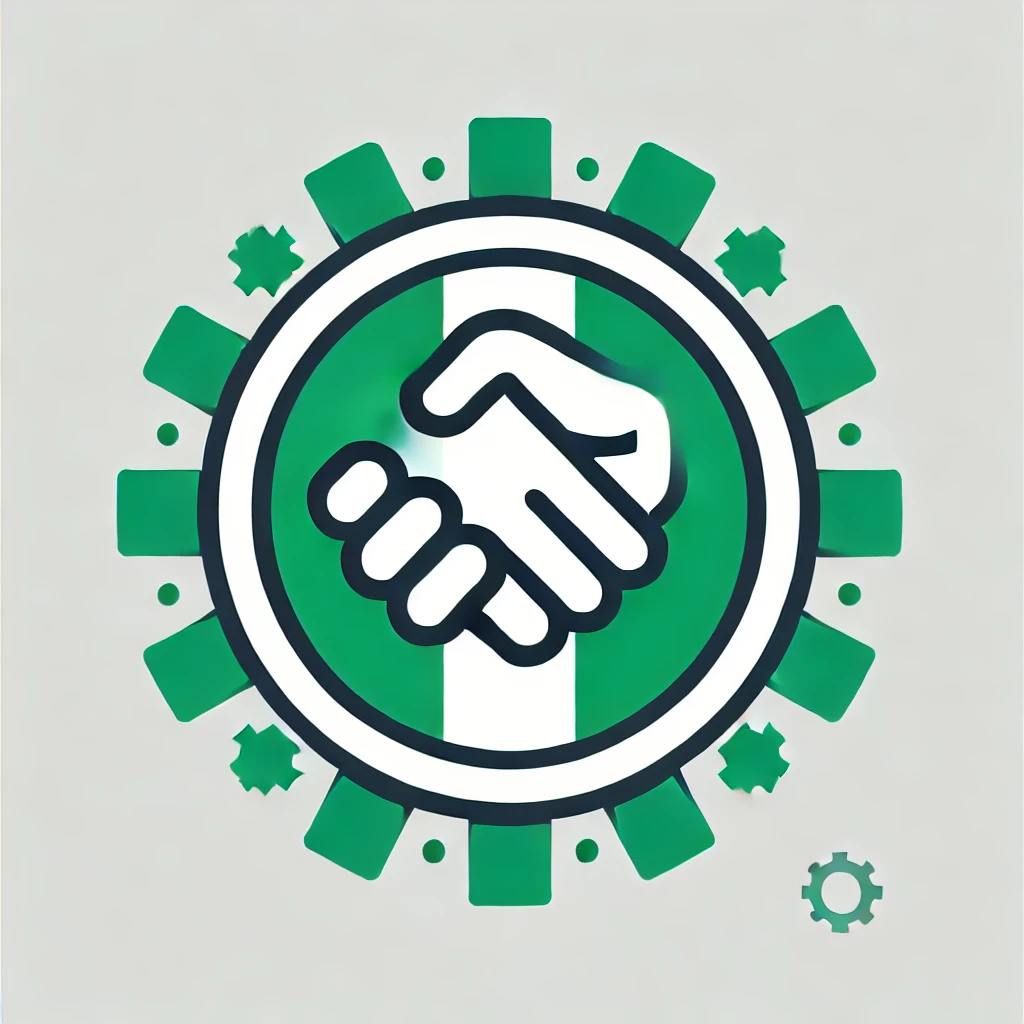Did you know! There are many tools for small businesses that will make you run your business efficiently, organize it, and adapt to it. Entrepreneurs come with multiple responsibilities—from managing finances to handling customer service and marketing. With the right tools, small business owners can simplify their tasks, helping them focus on growth and success.
In this guide, we will list the essential tools for small business owners across different categories, providing in-depth details on how they can improve business operations.
Table of Contents
ToggleBest Tools for Small Businesses

These are the best tools for small businesses that will help you to streamline your operations, manage your finances, boost your marketing, and improve productivity. They are:
1. Financial Management Tools
- QuickBooks (Accounting)
- Xero (Cloud Accounting)
- FreshBooks (Invoicing & Expense Tracking)
- PayPal (Online Payment Processing)
- Stripe (Payment Gateway)
- Expensify (Expense Management)
2. Communication and Collaboration Tools
- Slack (Team Messaging)
- Microsoft Teams (Business Communication)
- Zoom (Video Conferencing)
- Trello (Project Management)
- Asana (Task Management)
- Monday.com (Workflow Automation)
3. Marketing and Branding Tools
- Hootsuite (Social Media Management)
- Buffer (Social Media Scheduling)
- Canva (Graphic Design)
- Mailchimp (Email Marketing)
- Google Analytics (SEO & Website Analytics)
- Ahrefs (Keyword & Competitor Analysis)
4. E-commerce and Website Management Tools
- WordPress (Website Builder)
- Shopify (E-commerce Platform)
- Wix (Drag-and-Drop Website Builder)
- WooCommerce (Online Store Plugin)
- BigCommerce (Scalable Online Selling)
5. Customer Relationship Management (CRM) Tools
- HubSpot CRM (Free CRM for Small Businesses)
- Salesforce (Comprehensive Sales & Customer Management)
- Zoho CRM (Affordable CRM with AI Insights)
6. Productivity and Workflow Automation Tools
- Zapier (App Integrations & Automation)
- IFTTT (Task Automation)
- Notion (Business Planning & Note-Taking)
- Evernote (Organized Notes & Ideas)
7. Cybersecurity and Data Protection Tools
- LastPass (Password Management)
- Norton Small Business (Antivirus & Security)
- Cloudflare (Website Security)
- Bitdefender (Cybersecurity Protection)
8. Human Resource and Employee Management Tools
- Gusto (Payroll & HR Services)
- BambooHR (Employee & Applicant Tracking)
- Workday (Workforce Management & Analytics)
9. Inventory and Supply Chain Management Tools
- TradeGecko (Inventory & Order Management)
- Zoho Inventory (Cloud-Based Inventory Tracking)
- inFlow Inventory (Stock & Order Management)
See Also:Best Online Business in Nigeria
1. Financial Management Tools
Managing your finances is crucial for any successful businesses. These tools assist small business owners with accounting, budgeting, and transaction processing.
a. Accounting Software
-
QuickBooks – This is a powerful accounting software that helps small businesses owners with invoicing, expense tracking, tax calculations, and financial reporting. It automates many accounting tasks, reducing manual effort and minimizing errors.
-
Xero – A cloud-based accounting platform designed for real-time collaboration. It allows multiple users to access financial data, automate bank feeds, and manage expenses easily.
-
FreshBooks – another essential tools for freelancers and small businesses with simple accounting needs. It offers features like time tracking, invoicing, and financial reports, helping businesses stay organized.
b. Payment Processing
-
PayPal – One of the most widely accepted online payment platforms. It enables businesses to receive payments from customers worldwide, supporting multiple currencies and integrating with e-commerce websites.
-
Square – Perfect for businesses that need a point-of-sale (POS) system. Square offers mobile payment solutions, a free POS app, and tools to track sales and manage inventory.
-
Stripe – Best for businesses needing a customizable payment processing solution. It provides secure online transactions, subscription management, and seamless integration with e-commerce platforms.
c. Budgeting and Expense Tracking
-
Mint – A budgeting tool that helps small business owners monitor expenses, categorize transactions, and set financial goals.
-
Expensify – Automates expense tracking by scanning receipts and generating detailed financial reports. It reduces the hassle of manual bookkeeping.
-
Wave – A free tool offering bookkeeping, invoicing, and expense tracking. It integrates with bank accounts for real-time financial management.
2. Communication and Collaboration Tools
Effective communication is essential for productivity, especially for remote or hybrid teams. These tools help teams to collaborate seamlessly.
a. Team Communication
-
Slack – A messaging platform that organizes team conversations into channels. It allows direct messaging, file sharing, and integration with other business apps.
-
Microsoft Teams – A communication tool that integrates with Microsoft 365, providing chat, file sharing, and video conferencing features.
-
Zoom – Essential for virtual meetings, webinars, and online training sessions. It offers high-quality video and audio calls with screen-sharing options.
b. Project Management
-
Trello – A visual task management tool using Kanban boards. It helps teams organize tasks efficiently with drag-and-drop functionality.
-
Asana – Ideal for tracking projects, managing workflows, and assigning tasks. It improves team collaboration by keeping work structured.
-
Monday.com – A customizable workflow management tool that automates repetitive tasks and provides real-time project tracking.
Read more: Best Investment Opportunities in Nigeria
3. Marketing and Branding Tools
Marketing is key to attracting and retaining customers. These tools simplify content creation, social media management, and advertising.
a. Social Media Management
-
Hootsuite – Schedules posts across multiple social media platforms and provides performance analytics.
-
Buffer – A social media management tool that helps businesses schedule posts, manage multiple accounts, and track engagement.
-
Canva – A user-friendly design tool that allows businesses to create marketing materials, including social media graphics, posters, and presentations.
b. Email Marketing
-
Mailchimp – An email marketing platform with automation, audience segmentation, and detailed analytics.
-
Constant Contact – Offers easy-to-use templates for beginners looking to start email campaigns.
-
ConvertKit – Designed for bloggers and content creators, providing advanced automation for email marketing campaigns.
c. SEO and Analytics
-
Google Analytics – Tracks website traffic, user behavior, and conversion rates to help businesses optimize their websites.
-
Ahrefs – A tool for keyword research, backlink analysis, and competitor insights to improve search engine rankings.
-
Yoast SEO – A WordPress plugin that optimizes website content for better search engine visibility.
Read more: Profitable Agriculture Investment in Nigeria
4. E-commerce and Website Management
A strong online presence is vital for business growth. These tools help build and manage websites and online stores.
a. Website Builders
-
WordPress – A flexible and customizable platform with thousands of themes and plugins for businesses of all sizes.
-
Shopify – Ideal for e-commerce businesses, offering integrated payment processing, inventory management, and online store customization.
-
Wix – A drag-and-drop website builder with built-in SEO tools, making it easy for small businesses to create professional websites.
b. Online Store Management
-
WooCommerce – A WordPress plugin that turns a website into a fully functional online store.
-
BigCommerce – Provides powerful tools for scaling an online store with multi-channel selling options.
-
Magento – Best for larger businesses needing advanced e-commerce features, including customizable workflows and integrations.
5. Customer Relationship Management (CRM)
CRM software helps businesses manage customer interactions, sales, and relationships.
-
HubSpot CRM – A free and easy-to-use CRM with sales and marketing automation.
-
Salesforce – A comprehensive CRM tool with advanced features for tracking sales, customer data, and analytics.
-
Zoho CRM – Affordable and feature-rich, offering workflow automation and AI-driven insights.
6. Productivity and Workflow Automation
Automation tools help businesses save time and streamline operations.
-
Zapier – Connects different apps and automates workflows without coding.
-
IFTTT – Automates tasks across multiple platforms, such as syncing social media posts or scheduling emails.
-
Notion – Combines notes, tasks, and databases for better business organization.
-
Evernote – A note-taking app that helps business owners capture ideas and manage to-do lists efficiently.
7. Cybersecurity and Data Protection
Keeping business data safe is essential. These tools provide security against cyber threats.
-
LastPass – A password manager that securely stores and encrypts passwords.
-
Norton Small Business – Provides antivirus protection and real-time threat detection.
-
Cloudflare – Improves website security by blocking malicious traffic.
-
Bitdefender – Offers endpoint security and malware protection.
8. Human Resource and Employee Management
Managing employees effectively is key to business success.
-
Gusto – Handles payroll, employee benefits, and tax filings.
-
BambooHR – Provides HR management, including applicant tracking and performance reviews.
-
Workday – A comprehensive HR solution with workforce planning and analytics.
9. Inventory and Supply Chain Management
For businesses handling physical products, inventory management tools ensure smooth operations.
-
TradeGecko – Manages inventory and orders in real-time.
-
Zoho Inventory – Cloud-based inventory management with real-time tracking.
-
inFlow Inventory – Helps businesses track stock, manage orders, and automate purchase processes.
FAQs
1. What is the best financial tool for small businesses?
QuickBooks is one of the best financial tools, offering invoicing, expense tracking, and tax management in one platform.
2. How can I improve my small business marketing?
Using tools like Canva for design, Mailchimp for email marketing, and Google Analytics for insights can help improve your marketing efforts.
3. What is the best e-commerce platform for a small business?
Shopify is ideal for small businesses looking to set up an online store quickly, with built-in payment processing and inventory management.
4. How can I secure my small business data?
Using cybersecurity tools like LastPass, Norton, and Cloudflare can protect sensitive business information from cyber threats.
5. What CRM tool is best for small businesses?
HubSpot CRM is a great free option that helps businesses manage customer relationships and automate sales processes.
Conclusion
Using the right tools for small business can enhance efficiency, streamline operations, and drive profitability. Whether you need help with finances, marketing, or customer management, these tools empower business owners to focus on growth and innovation.
Investing in technology can be the key differentiator between struggling and thriving in a competitive market. Start small, explore free trials, and choose tools that align with your business needs.









